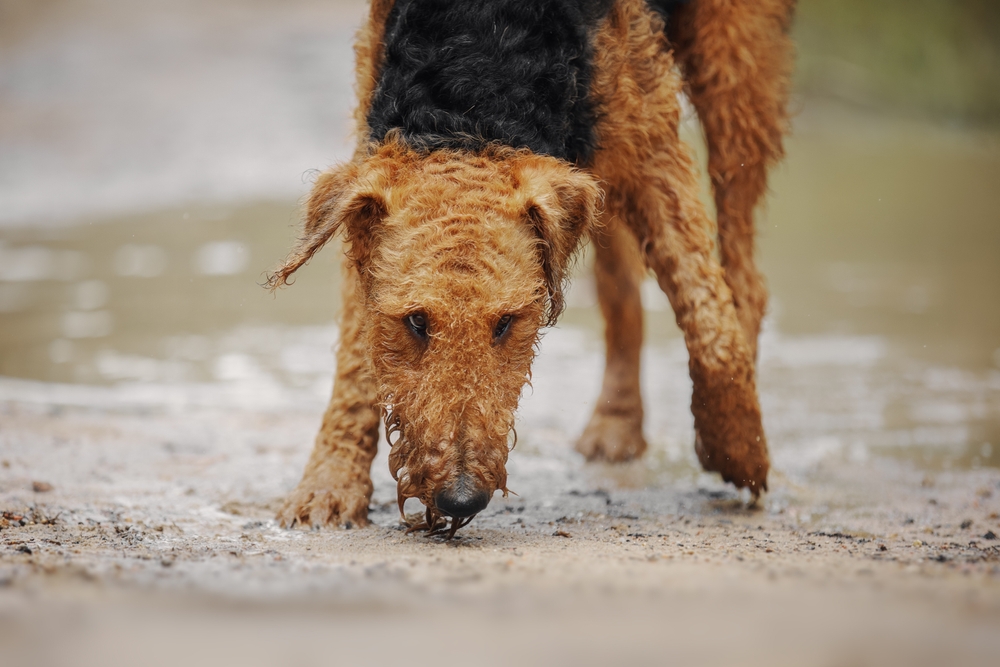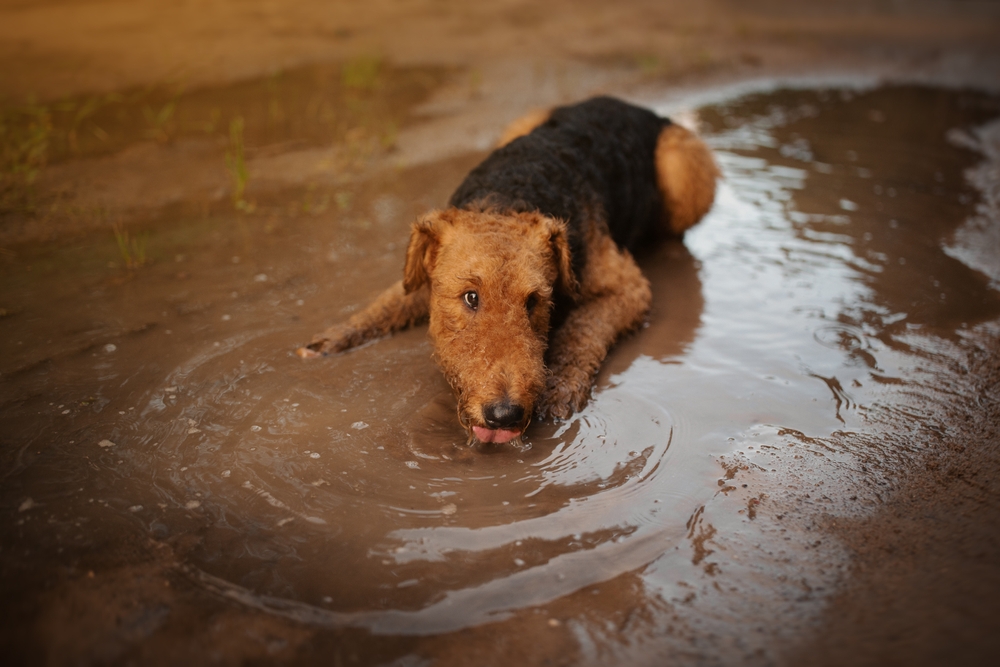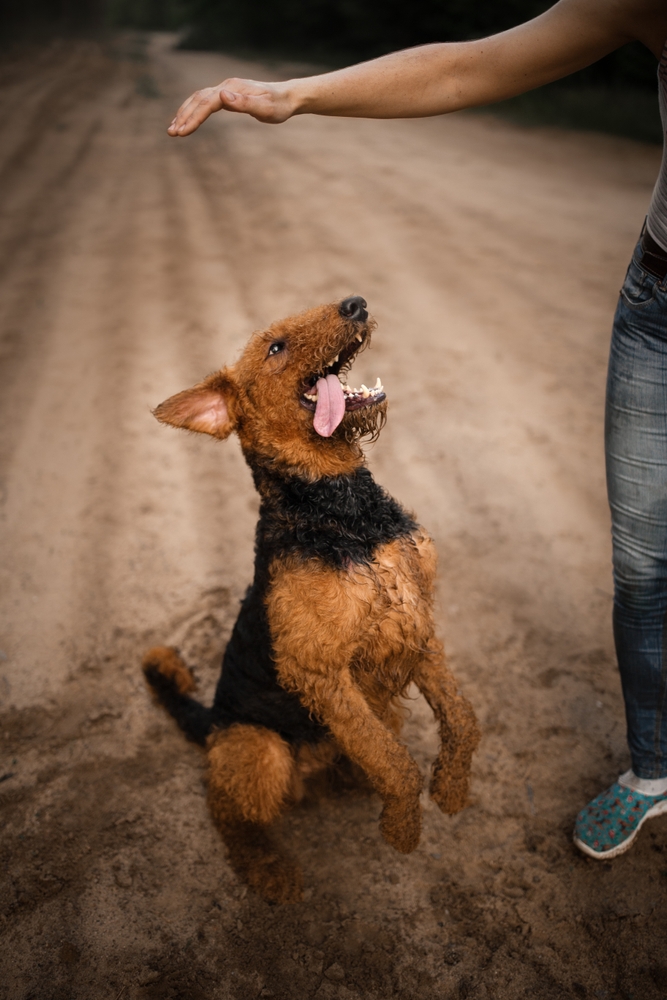Airedale Terrier Behavior Issues and How to Address Them
As passionate dog lovers and seasoned dog trainers, we understand that each canine breed comes with its unique set of behavioral characteristics and challenges. In this comprehensive guide, we will delve deep into the behavior issues commonly observed in Airedale Terriers and provide you with valuable insights on how to effectively address and manage these concerns. Our goal is to equip you with the knowledge and techniques necessary to foster a harmonious relationship with your Airedale Terrier, ensuring both you and your furry companion lead happy, stress-free lives.

Understanding the Airedale Terrier
Before we delve into specific behavior issues, it’s essential to grasp the nature of the Airedale Terrier as a breed. Known for their intelligence, loyalty, and energetic disposition, Airedales make wonderful companions when provided with the right training and care. Originally bred as hunting and working dogs, they have a strong prey drive and a desire to please their owners.


Behavior Issues in Airedale Terriers
-
Excessive Barking
Airedales are excellent watchdogs, which means they tend to be vocal and alert their owners to potential threats or strangers. However, excessive barking can become a problem, especially in urban environments or if not appropriately addressed. To tackle this issue, we recommend positive reinforcement training, rewarding quiet behavior and teaching a “quiet” command. Providing mental stimulation and physical exercise can also help reduce their need to bark out of boredom.
-
Chewing and Destructive Behavior
Like many dogs, Airedales may engage in destructive chewing, especially during their teething phase or when left alone for extended periods. To prevent this behavior, ensure they have access to appropriate chew toys and interactive puzzles to keep them occupied. Puppy-proofing your home and using positive reinforcement to encourage good chewing habits are vital steps.
-
Digging
Airedale Terriers have a strong prey drive, and digging is a natural behavior deeply rooted in their instincts. While it might be challenging to eliminate entirely, providing designated digging areas in your yard can redirect this behavior away from undesirable locations. Regular exercise and playtime can also help minimize their desire to dig.
-
Leash Reactivity
Some Airedales may exhibit leash reactivity, becoming overly excited or aggressive when encountering other dogs or stimuli during walks. Proper leash training and socialization from an early age can significantly reduce this issue. Using positive reinforcement to reward calm behavior on walks is instrumental in promoting positive interactions.
-
Separation Anxiety
Airedales are highly affectionate and form strong bonds with their owners, which can lead to separation anxiety when left alone. Gradual desensitization to your departures, providing interactive toys, and creating a comforting environment can help alleviate separation anxiety. Avoid making departures and arrivals overly emotional to prevent reinforcing their anxiety.
-
Dominance Tendencies
Airedales are known for their independent nature, which can sometimes translate into dominant behavior. As responsible owners, it’s crucial to establish yourself as the pack leader through consistent training and positive reinforcement. Setting clear boundaries and rules will help your Airedale understand their place in the family hierarchy.
Effective Strategies for Addressing Airedale Behavior Issues
-
Early Socialization
Introduce your Airedale Terrier to various people, animals, and environments during their critical socialization period (between 3 to 14 weeks of age). Positive experiences during this time will lay the foundation for a well-adjusted and confident adult dog.
-
Positive Reinforcement Training
Airedales respond exceptionally well to positive reinforcement training methods. Use praise, treats, and affection to reward desired behaviors, while avoiding punishment-based techniques that may lead to fear or aggression.
-
Consistent Routine
Maintain a consistent daily routine for feeding, playtime, training, and walks. Airedales thrive on predictability, and a stable routine will help them feel secure and confident.
-
Mental and Physical Stimulation
Airedales are intelligent and energetic dogs, necessitating both mental and physical stimulation. Engage them in activities that challenge their minds, such as interactive toys and puzzles, and ensure they receive regular exercise to release excess energy.
-
Patience and Understanding
Each Airedale is unique, and addressing behavior issues may require time and patience. Understand that some behaviors may take longer to change, and be consistent in your training efforts.

Airedale Terrier Behavior Issues and How to Address Them
Airedale Terriers are remarkable dogs with an abundance of love and loyalty to offer their families. By understanding their behavior issues and employing positive, consistent training techniques, you can build a strong and loving bond with your Airedale. Remember, patience, understanding, and early intervention are the keys to a happy and well-adjusted Airedale Terrier.